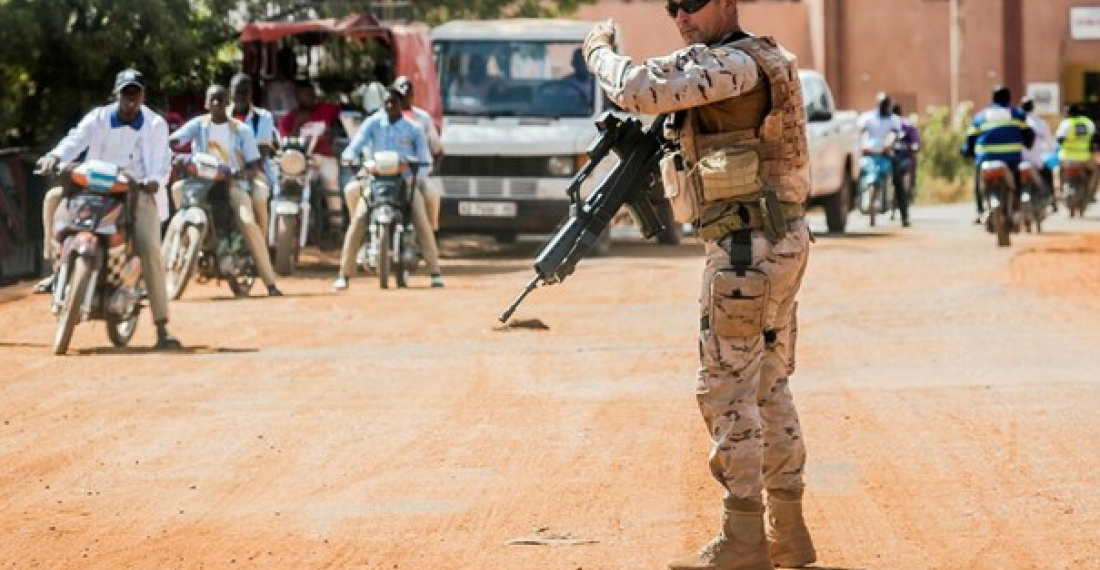Josep Borrell, the EU's foreign policy chief, said on Monday (11 April) that the European Union would suspend European army and national guard training missions with Malian soldiers, while continuing advisory and educational activities.
Borrell attributed his decision to the lack of guarantees from the Malian transitional authorities that Russian mercenaries from the paramilitary group Wagner would not interfere with the EU's work.
The ending of training of Malian forces by European forces casts further doubt on the longevity of the UN peacekeeping mission - MINUSMA - and the European Union's EUTM and EUCAP military training missions, following the departure of France and its allies earlier this year.
Mali and the Sahel region has been battling with an Islamist insurgency since al-Qaeda jihadists affiliates occupied northern Mali in 2012, forcing Bamako to seek external help to fend off the jihadist threat.
France, Mali's main military ally for almost 10 years, announced in February that it would withdraw its forces from Mali after ties deteriorated following Paris' criticism of the military coup and the military's unwillingness to return the country to civilian rule.
Moreover, France and its European allies have protested the presence of the Russian paramilitary group Wagner in Mali, designated by the West as “mercenaries”. Mali, which pays the Wagner group 10 million euros a month for its anti-terrorist assistance, considers the Russians as "instructors".
The terrorist threat has thus had a direct impact on the civilian population.
According to the UN, internal displacement has increased tenfold since 2013, from 217,000 to a staggering 2.1 million by late 2021. Indeed, last year alone, armed groups carried out more than 800 deadly attacks.
The paramilitary group Wagner, which is already subject to EU sanctions as well as being accused of human rights abuses, was also responsible for the deaths of many civilians during a military operation in Moura, central Mali, in late March, according to Borrell.
If the military training is suspended, Josep Borrell was keen to reassure on the commitment of the EU in the Sahel by stating that the region remains a priority, and that the EU want to commit even more in this region. The EU will focus more on involving its security advisors.
With the growing terrorist threat south of the Sahel, Europeans are eager to stay in the region, both in the Sahel and in the Gulf of Guinea. Even if Mali is no longer an option, the EU could offer similar military training missions to countries such as Niger and Burkina Faso.
The Benelux and Southern European countries, at the EU Foreign Ministers' Council on Monday 11 April, were against the EU leaving the region. It is also felt necessary to maintain the dialogue between the EU and the Malian authorities, as it is not certain that Wagner's mercenaries can remain in Mali indefinitely.







